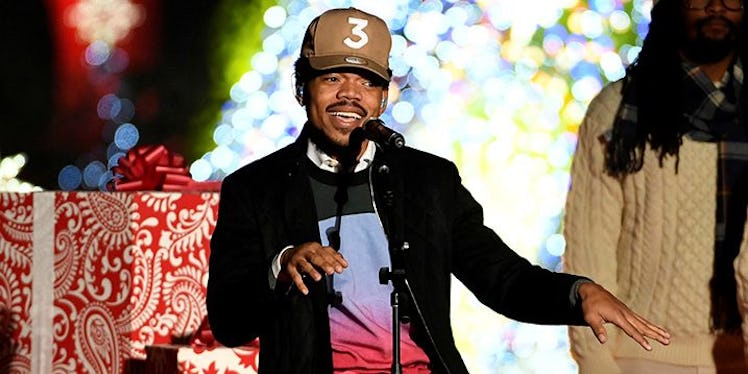
Here's The Problem With Chance The Rapper's $1 Million Donation To Chicago
You can make an argument that Chance the Rapper's generous donation to Chicago public schools is more impressive than it's getting credit for.
Just think about it.
It'd be one thing if this $1 million gift came from Jay Z and Beyoncé, who, together, are probably worth over $1 billion (which explains the insane house they're rumored to have just purchased).
It's a whole different ball game when it comes from a guy like Chance.
Yeah, he's famous and (relatively) rich, most likely, but he's still a 23-year-old independent artist who just hit his prime.
To put it simply, Chance ain't got it like that, and yet, he still gave to his hometown.
It's a really remarkable gesture and it shows why Chance has grown this reputation as a rapper with a heart that everybody loves.
But any serious commentary on what he's doing would be incomplete without noting one inconvenient truth: donations like his will never be enough.
Now, on one hand, you can argue that this is a statement that goes without saying. I mean, it's simple math right? A donation of $1 million is a lot less than the millions upon millions of funding that it would take to fix a fractured school system.
Yes, obviously.
But on the other hand, the point about Chance's gesture being both important and, unfortunately, insufficient, is worth reiterating because of the strange way charity work in areas like Chicago are covered.
Need a perfect example?
Take Colin Kaepernick.
Regardless of what you think about his actual method of protest, there's no question that more people were willing to listen to his message after he donated $1 million to address the issues of "oppression" he'd been talking about.
This highlights the weird fascination people have with rappers, ballers and people who "made it out" giving back to their communities.
Everyone will applaud the generous gestures that only make a dent in their hometown's problem.
Yet, there are significantly less people willing to discuss the uncomfortable reality: There's almost always an issue of perpetual discrimination that keeps these communities the way they are.
Perpetual discrimination keeps these communities the way they are.
This is a point Chance is sure to agree with himself. After all, he implied he had the same exact frustration. While announcing his donation (which, by the way, will be generated from ticket sales), the multi-Grammy-winning artist told the press,
I want y'all to do your jobs. The international and national publications out there — Complex, Billboard, people that post about me walking down the street and shit — if you guys could give a comprehensive history on how we ended up here.
Well, let's take care of bit of that now.
Chicago's problems are about more than the shootings you see on Fox News anytime someone wants to assert that the "real" problem is black-on-black crime.
Chicago is a story about decades of housing discrimination, problematic policing, underfunded schools and all the things that can happen to you when you're black and live around other people who are black.
In other words, the city provides a textbook case of how racism is destructive for black lives. I
t's the reason why Ta-Nehisi Coates puts so much focus onto the city in his case for reparations, and why the Department of Justice discovered what it did when it investigated Chicago PD.
That's a bit of a rough summary, of course, but there's no shortage of resources that will corroborate the info.
Regardless of which source you consult, know this: We should applaud Chance for going into his own pockets to try to fix the problems politicians won't.
But we should pay just as much attention to why that frustration has, does and (probably) will always exist.